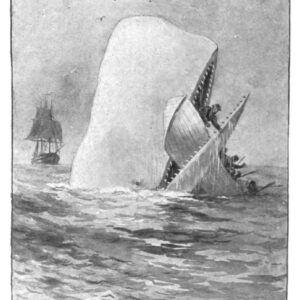
9 Great American Novels by Authors Born in Other Countries
Against Isolationism on July 4th
First things first: what exactly is a Great American Novel? Opinions have long been divided on the subject, and the truth is, one person’s GAN is another’s trashy beach read. Er, probably. Still, I think that John Scalzi more or less nailed it when he cited the three qualities necessary to rate as a GAN in the Los Angeles Times in 2016, in support of To Kill a Mockingbird:
Ubiquity: It has to be a novel that a relatively large number of Americans have read, and that a large proportion of those who haven’t read it know about in other ways (for example, by a popular filmed adaptation).
Notability: There has to be a general agreement that the novel is significant—it has literary quality and/or is part of the cultural landscape in a way that’s unquestionable (even if critically assailable).
Morality: It needs to address some unique aspect of the American experience, usually either our faults or our aspirations as a nation, with recognizable moral force (not to be confused with a happy ending).
Notice the lack of any suggestion that the book actually be written by an American. And while I’d certainly agree that it would be difficult to write a novel addressing the American experience without at least living here for a while, sometimes it takes an outsider to really see the truth of something. Not to mention the fact that America was built on immigrants and refugees, and that diversity of any kind typically enriches the lives and minds of all involved, making it much more likely to be Great. It’s no different in literature, and it’s no different in the canon of Great American Novels. (Someone should tell our current administration that, but everyone knows they don’t read books anyway.) So with that in mind, an incomplete selection of books that could be considered Great American Novels, despite the fact that their authors—though they may now be Americans—were born elsewhere.
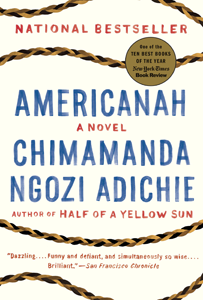 Americanah, Chimamanda Ngozi Adichie
Americanah, Chimamanda Ngozi Adichie
Ubiquitous? Check. Notable? Check. Addressing a unique aspect of the American experience? Only if you count the intricacies of race relations, which are here enhanced rather than obscured by the subtlety of Adichie’s outsider status. The novel’s main character, Ifemelu, is a black woman in America, but being Nigerian, definitively not an “African-American.” Which makes things a little complicated. Hence the title of the blog she starts: “Raceteenth or Various Observations About American Blacks (Those Formerly Known as Negroes) by a Non-American Black.” Add immigration, the internet, the college experience, and hair to that, and you have a novel that is both a Great American and a Great Nigerian Novel—which is sort of what America is all about.
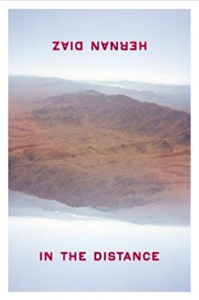 In the Distance, Hernán Diaz
In the Distance, Hernán Diaz
This is a newer book than most of the rest on this list—it was only published last year—but it’s well on its way to becoming a classic. For one thing, it was a dark horse Pulitzer Prize finalist. For another, it’s wonderful, an update and subversion of the American Western that sees a young Swedish immigrant encountering good and very very bad in this strange American land, while on the hunt for his brother. “As a literary genre,” Diaz told The Paris Review, “the Western is a great riddle to me.
Because it whitewashes American history and offers a very attractive myth of the birth of this country, it should have become the national genre. Vigilantism, greed, racism, and plunder are all romanticized in the Western. There is a very American obsession with space and exploration, but in the end, nature tends to be debased to a mere source for the extraction of wealth. Also, the genre usually favors the individual over the law. And there is the gun fixation, of course. The list goes on. In short, even if the Western should have become our national genre, it has a marginal place in the literary canon. . . So I saw in the Western a slightly derelict genre that was ready to be taken over. And because of its ideological connotations, it seemed like hijacking the Western was a perfect way to say something new about the United States and its history.
Díaz was born in Argentina, and lived there and in Sweden as a child, in London in his twenties, and has lived in New York for the last twenty years.
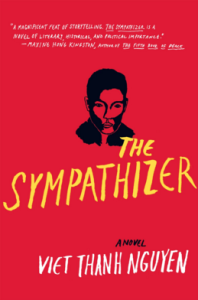 The Sympathizer, Viet Thanh Nguyen
The Sympathizer, Viet Thanh Nguyen
Nguyen’s bestselling debut, which takes on the Vietnam War—a huge and divisive moment in American history—from a new perspective (that of a conflicted half-Vietnamese communist sympathizer), won the Pulitzer in 2016. After the fall of Saigon, Nguyen and his parents fled to the US; Nguyen is now a professor at UCLA. In an interview with Terry Gross, he described watching Apocalypse Now as a ten-year-old:
I was cheering for the American soldiers until the moment in Apocalypse Now where they started killing Vietnamese people. And that was an impossible moment for me because I didn’t know who I was supposed to identify with, the Americans who were doing the killing or the Vietnamese who were dying and not being able to speak?
And that moment has never left me as the symbolic moment of my understanding that this was our place in an American war, that the Vietnam War was an American war from the American perspective and that, eventually, I would have to do something about that.
Eventually, he did.
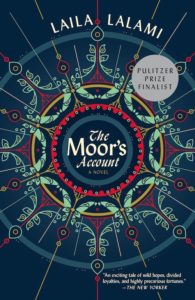 The Moor’s Account, Laila Lalami
The Moor’s Account, Laila Lalami
This multi-award-winning novel is an alternate history of the beginnings of America, the fictionalized account of the first African explorer to reach the New World—albeit as a slave. This is not the America we know, but it’s the America that brought us here—and it’s an America we need to know about.
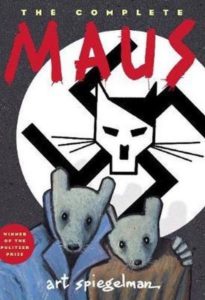 Maus, Art Spiegelman
Maus, Art Spiegelman
Only the frame narrative of Maus is set in the United States (in New York City in 1978, as Spiegelman asks his father about his experiences during the Holocaust), but considering the lasting impact that Hitler’s regime has had on this country, culturally and otherwise, and the ongoing relevance and popularity of this graphic novel, it’s American enough for me. Though he’s certainly an American author now, Spiegelman was born in Stockholm and came to the United States with his parents as a small child. “I remember my mother reciting the Emma Lazarus sonnet inscribed on the statue’s base to me in my childhood as if it were liturgy,” he wrote in the New York Times. “‘Give me your tired, your poor, your huddled masses yearning to breathe free/The wretched refuse of your teeming shore/Send these, the homeless, tempest-tost to me.’ In the decades since, I had to learn how often Emma Lazarus’s sentiments have been betrayed by harsh immigration policies. ICE has scorched the dreams of many of the tempest-tost and these days actively betrays that inscription with a cruelty my parents had hoped they had left behind.”
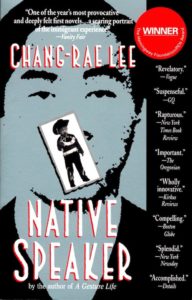 Native Speaker, Chang-rae Lee
Native Speaker, Chang-rae Lee
An established modern classic (which, fun fact, was the first ever published by then-new imprint Riverhead Books) about a Korean man trying his best to become a Real American—whatever that means. It’s a story about assimilation, shifting identities, and piecing together a self at the epicenter of a culture clash. Anyone who has ever felt out of place, or unsure how to deal with the world with which they are presented, or not certain what being a Real American really entails, should relate.
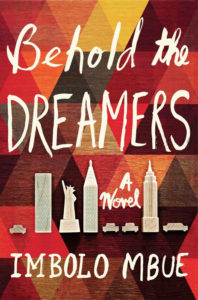 Behold the Dreamers, Imbolo Mbue
Behold the Dreamers, Imbolo Mbue
It doesn’t get much more American than Oprah’s Book Club. In her bestselling 2016 pick, two families—one wealthy, one struggling, one native, one immigrant—in New York City grapple with their crumbling lives during the 2007-08 financial crisis. An important and difficult recent novel about the true nature of the American Dream.
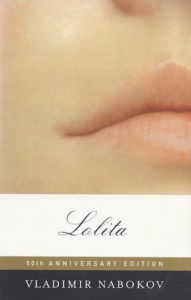 Lolita, Vladimir Nabokov
Lolita, Vladimir Nabokov
Born in St. Petersburg, but destined to become a touchstone of American letters. As Mary Elizabeth Williams put it years ago in Salon, part of the greatness of Nabokov’s Great American Novel is that (like Americanah) it relies on a “view of America that could only have come from an outsider.” But, she writes, “what makes Lolita a work of greatness isn’t that its title has become ingrained in the vernacular, isn’t that was a generation ahead of America in fetishizing young girls. No, it is the writing, the way Nabokov bounces around in words like the English language is a toy trunk, the sly wit, the way it’s devastating and cynical and heartbreaking all at once.”
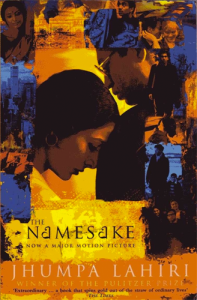 The Namesake, Jhumpa Lahiri
The Namesake, Jhumpa Lahiri
Like Spiegelman, this is a slight cheat, since Lahiri, though born in London, moved to the U.S. as a young child and is without question an American author—just ask every book club in the country. But still, she wasn’t born here, so I get to count this wonderful novel, which describes the lives and struggles of a couple who have moved to America from Calcutta, and the child they have there (and name after Nikolai Gogol).
Emily Temple
Emily Temple is the managing editor at Lit Hub. Her first novel, The Lightness, was published by William Morrow/HarperCollins in June 2020. You can buy it here.









